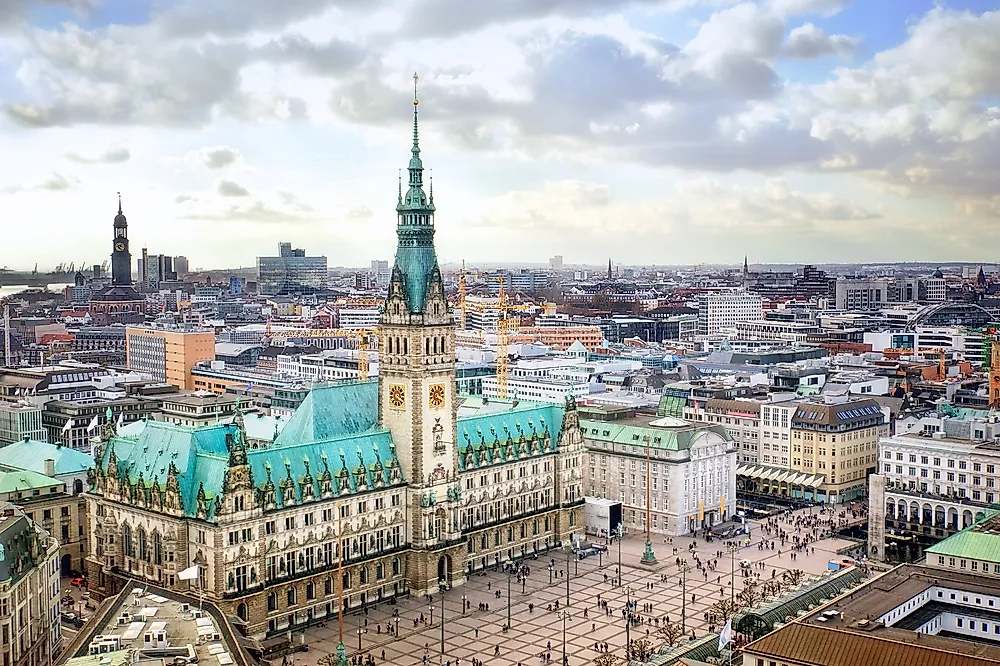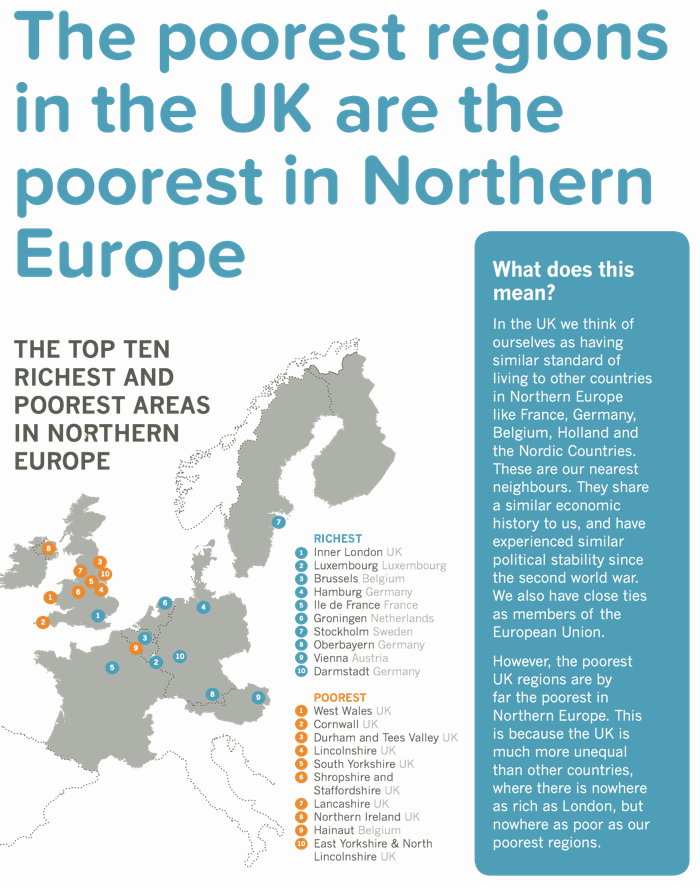Antwort Is Germany a rich or Poor country? Weitere Antworten – Is Germany poor or rich
The economy of Germany is a highly developed social market economy. It has the largest national economy in Europe, the third-largest by nominal GDP in the world, and fifth by GDP (PPP). Due to a volatile currency exchange rate, Germany's GDP as measured in dollars fluctuates sharply.The important role of industry. In Germany the share of industry in gross value added is 26.6 per cent, making it the highest among the G7 countries. The strongest sectors are vehicle construction, electrical industry, engineering and chemical industry.The county Vorpommern-Greifswald (in the far notheast) is the second poorest area, and then, the city of Duisburg is next. The poorest city in Germany is Gelsenkirchen (North Rhine-Westphalia).
How rich is Germany today : With a gross domestic product (GDP) of 4.121 billion euros in 2023, Germany is the third-largest economy in the world after the United States and China, and thus also the largest economy in Europe.
Who is richer England or Germany
Top 10 Richest Countries in Europe by total 2020 GDP (current US$ – IMF)
| Country | GDP (IMF '23) |
|---|---|
| Germany | $4.43 Tn |
| United Kingdom | $3.33 Tn |
| France | $3.05 Tn |
| Italy | $2.19 Tn |
Is Germany middle class : More than 80 percent of Germans classify themselves as belonging to the middle class. In fact, statistically speaking, about 26.1 million households in Germany belonged to the middle class in 2019. At 63 percent, this represents less than two-thirds of all households.
Germany, currently, has the highest GDP in Europe, however, this does not mean that everyone in Germany is a billionaire. The average salary is, in fact, around 45,600 euros. Although the trend is that German salaries have been on the rise since 2000, there has been a dip since 2019.
The bad news is that a more fundamental structural headwind—sluggish productivity growth—is likely to remain, absent reforms, while another—population aging—will accelerate sharply. These fundamental headwinds are the main obstacles Germany faces in improving its medium-term growth prospects.
Where do the rich live in Germany
Munich – Munich is often considered one of the wealthiest cities in Germany, with a high concentration of millionaires and billionaires. It is home to many large corporations and is known for its strong economy.Summary
- Halle (Saale): Halle offers affordable housing and dining, cheap groceries, and manageable transportation costs.
- Leipzig: One can expect to spend around $1392 monthly for a single person's living expenses in Leipzig.
- Duisburg: This city offers affordable housing, daily expenses, and utilities.
Russia overtakes Germany to become fifth biggest economy in the world in GDP on a PPP basis. The late US Senator John McCain once called Russia a “gas station masquerading as a country” and the fact that Russia's nominal GDP is about the same as Italy's has long been used to dismiss it as unimportant.
Luxembourg is the wealthiest country in the European Union, per capita, and its citizens enjoy a high standard of living. It is a major center for large private banking, and its finance sector is the biggest contributor to its economy.
Is it cheaper to live in Germany or UK : Germany is ranked the 10th highest in terms of cost of living, making it cheaper to live in Germany than it is in the UK, Denmark, Norway, France, or the Netherlands.
What is the top 1 salary in Germany : To reach the top 1 percent of earners, you would need a monthly take-home salary of 7.190 euros. This is equivalent to an annual net income of almost 86.000 euros, after taxes, or an annual gross salary of around 150.000 euros.
Is 100k euro a good salary in Germany
Across Germany, 6 per cent of employees are earning more than €100,000, according to Stepstone's own salary data. The highest proportions of top earners are in Hamburg and Hesse, where 8 per cent are earning more than €100,000.
The old myth of the superpower US as a rich, modern and efficient economy remains alive, underpinned by a per capita gross domestic product (in 2022) 57 per cent higher than in Germany—still 21 per cent superior after adjusting for the differential effect of exchange rates on purchasing power.Germany's Real Challenges are Aging, Underinvestment, and Too Much Red Tape. Germany is struggling. It was the only G7 economy to shrink last year and is set to be the group's slowest-growing economy again this year, according to our latest projections. Some pundits say Germany's economic model is irreparably broken.
Is German economy in trouble : The German economy is in "troubled waters," according to country's economy minister. Robert Habeck said the German government's forecast for economic growth for 2024 had been revised down from 1.3% to 0.2%.








